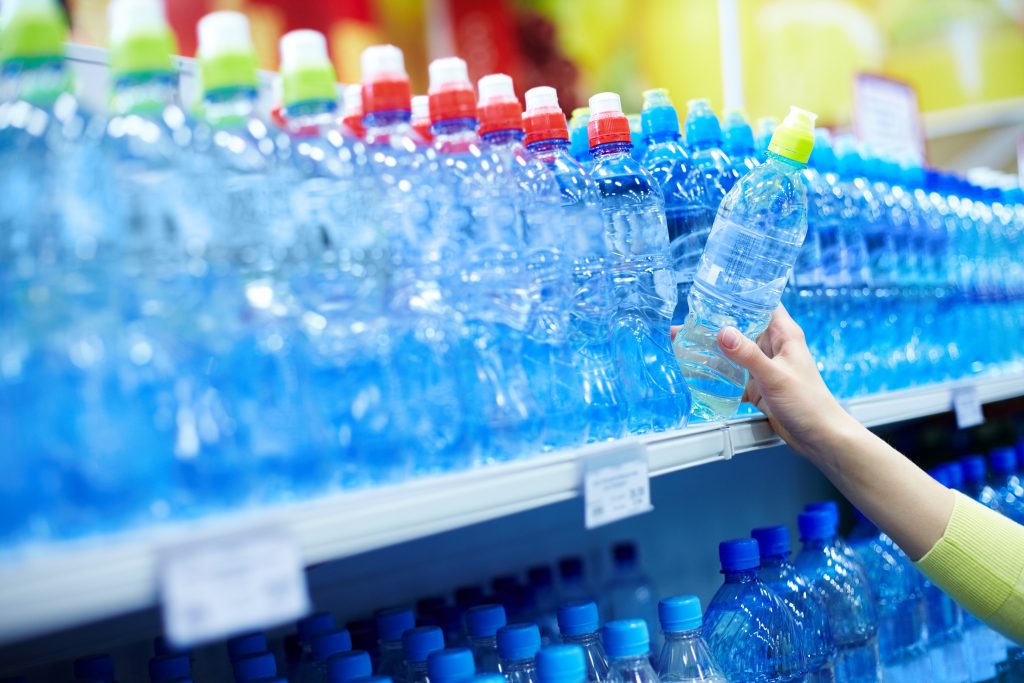On Monday 18 February, the Deputy Minister for Housing and Local Government, Hannah Blythyn AM released a written statement announcing three consultations that are aiming to tackle plastic and packaging waste.
She has urged the Welsh public to have their say on the joint proposals, launched by the Department for Environment, Food and Rural Affairs (DEFRA). The proposals include Extended Producer Responsibility (EPR) for packaging (that will apply to the UK as a whole), and a Deposit Return Scheme (DRS) for drinks containers applying to Wales, England and Northern Ireland (the Scottish Government consulted on DRS proposals last year).
A third UK-wide consultation, published by HM Treasury, is seeking views on a proposed tax on the production and importation of plastic packaging containing less than 30% recycled content.
These approaches to reduce plastic waste support Welsh ministerial plans to move towards a circular economy, where products/packaging never become waste, but contribute positively to the economy.
This blog looks at the DEFRA proposals in more detail.
Extended Producer Responsibility
Introduced by the EU Waste Framework Directive, EPR is a way of encouraging producers to consider the post-consumer phase of a product’s lifecycle by giving them responsibility for its end of life management, including the waste management costs. This is in line with the ‘polluter pays’ principle.
A 2018 report by Eunomia, commissioned by the Welsh Government, on options for extended producer responsibility in Wales identified options, in line with EPR principles, to tackle a number of issues associated with key food and drink (F&D) packaging and associated littering in Wales.
The report recommended the Welsh Government should seek to achieve full cost recovery, dropping to 80% in some cases, from producers. It suggested this would rebalance ‘costs away from citizens/taxpayers towards consumers/producers’ in line with Welsh Government’s well-being goals of a prosperous and more equal economy.
In a Plenary statement on the 8 May 2018 on EPR developments in Wales, the then Minister for the Environment, Hannah Blythyn AM, said:
Since this report was commissioned, there have been developments at a UK level, and in some areas it makes sense for us to work together with DEFRA and the other devolved administrations.
Under the proposed EPR system being jointly consulted on, businesses and manufacturers will pay the full cost of recycling or disposing of their packaging waste. The proposals aim ‘to see a reduction in the use of unnecessary and difficult to recycle packaging’:
we want more packaging to be designed for optimal recyclability, we want more packaging waste to be recycled and we want more packaging to be made from recycled material.
Deposit Return Scheme
The purpose of a DRS is to encourage the return of materials into an organised reuse, recycling or treatment/disposal process. The basic principle of deposit systems on beverage packaging is that consumers, on purchasing beverage products, pay an additional fee on the packaging in the form of a deposit. The OECD defines DRS as:
… the surcharge on the price of potentially polluting products. When pollution is avoided by returning the products or their residuals, a refund of the surcharge is granted.
The joint proposals set out two potential models – the ‘all-in’ model, which would not place any restrictions on the size of drinks containers within the scope of a DRS, targeting a large amount of drinks containers placed on the market, irrespective of size. The alternative ‘on-the-go’ model would restrict the drinks containers in the scope of the DRS to those less than 750ml in size and sold in single format containers. This would target containers most often sold for consumption outside the home, and those that are more likely to escape recycling waste streams.
The consultation introduces the concept of a central organisation or body to manage the DRS operation, and proposes a new not-for-profit body, the Deposit Management Organisation (DMO), which would be established for the purpose of running the DRS:
- Due to the proposed management of financial flows, a monitoring and enforcement body would be needed to monitor and audit DMO operations to ensure the system is operating fairly and transparently
The UK Government has said that the proposals:
… could drive up the recycling of an estimated three billion plastic bottles which are currently incinerated, sent to landfill or left to pollute streets, countryside and the marine environment.
Plastic Packaging Tax
A single use plastics tax was put forward by the Welsh Government as one of four new taxes considered by the Cabinet Secretary for Finance. The UK Government then announced a call for evidence on taxation around single-use plastics. The Welsh Government has opted “to work with the UK Exchequer to try and have a UK-wide single-use plastic tax”.
Plastic waste and packaging waste are important issues. Every year in the UK, we generate around 11 million tonnes of packaging waste as a whole 2.3 million tonnes of which is plastic packaging waste.
The Treasury’s proposed plastic tax would come into force from April 2022, and is aimed at creating a financial incentive to use recycled plastics over virgin materials.
The proposed tax is intended to encourage an increase in the amount of recycled plastic content in plastic packaging produced and sold in the UK, as such will cover materials manufactured or imported into the UK. However, to ‘ensure that UK manufacturers are not at a competitive disadvantage, exports of chargeable plastic packaging will not be subject to the tax’.
Article by Lorna Scurlock, Senedd Research, National Assembly for Wales







